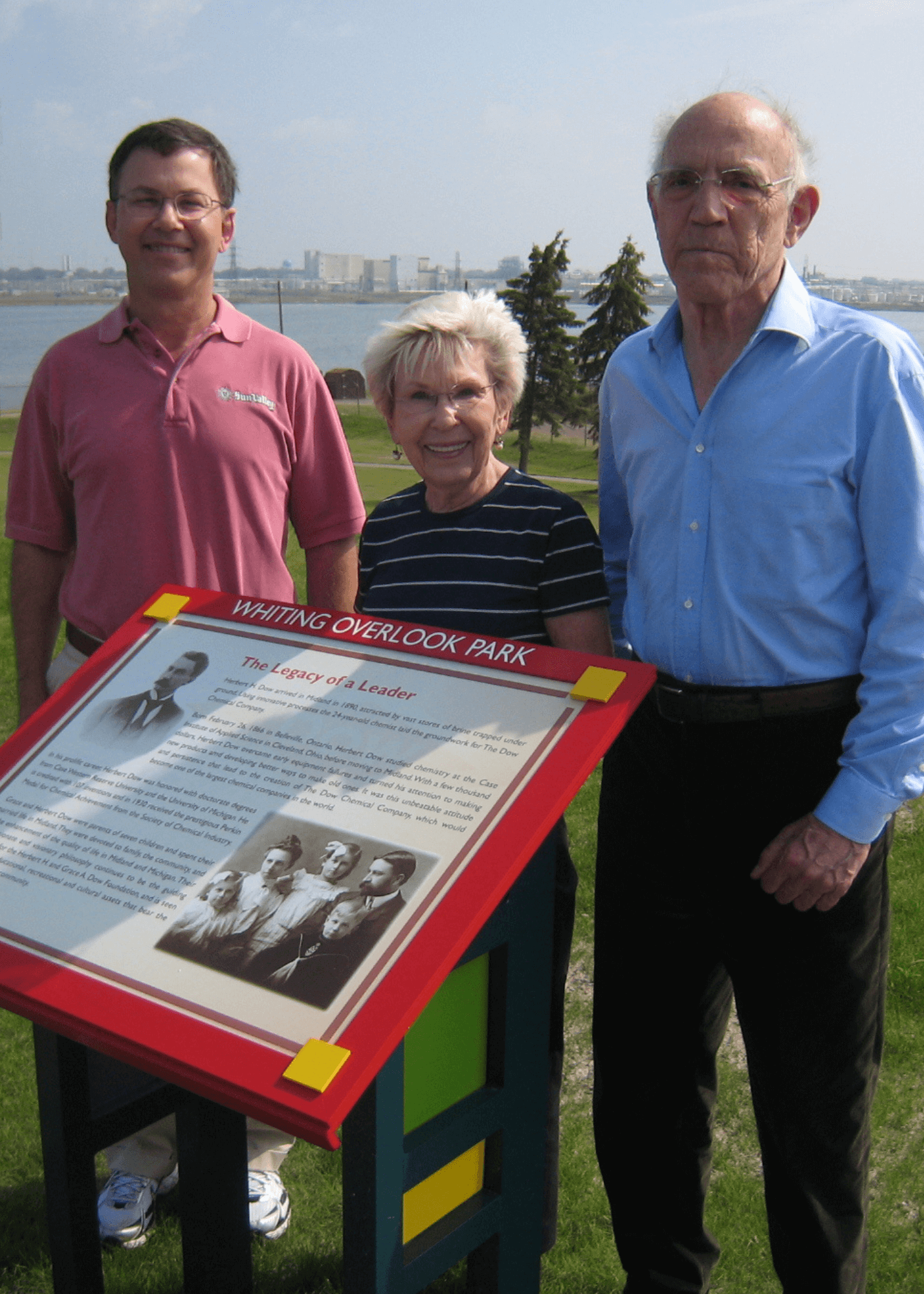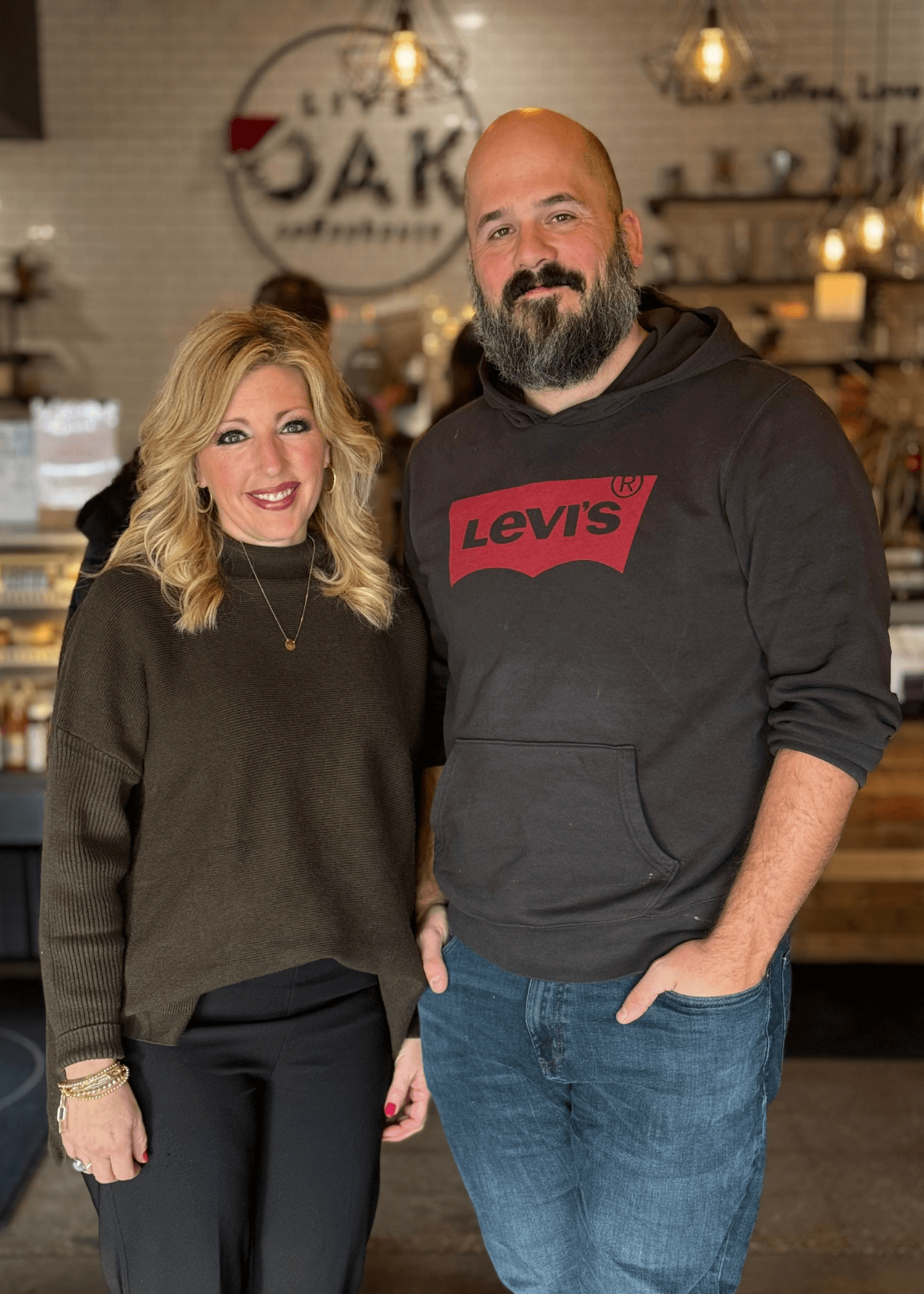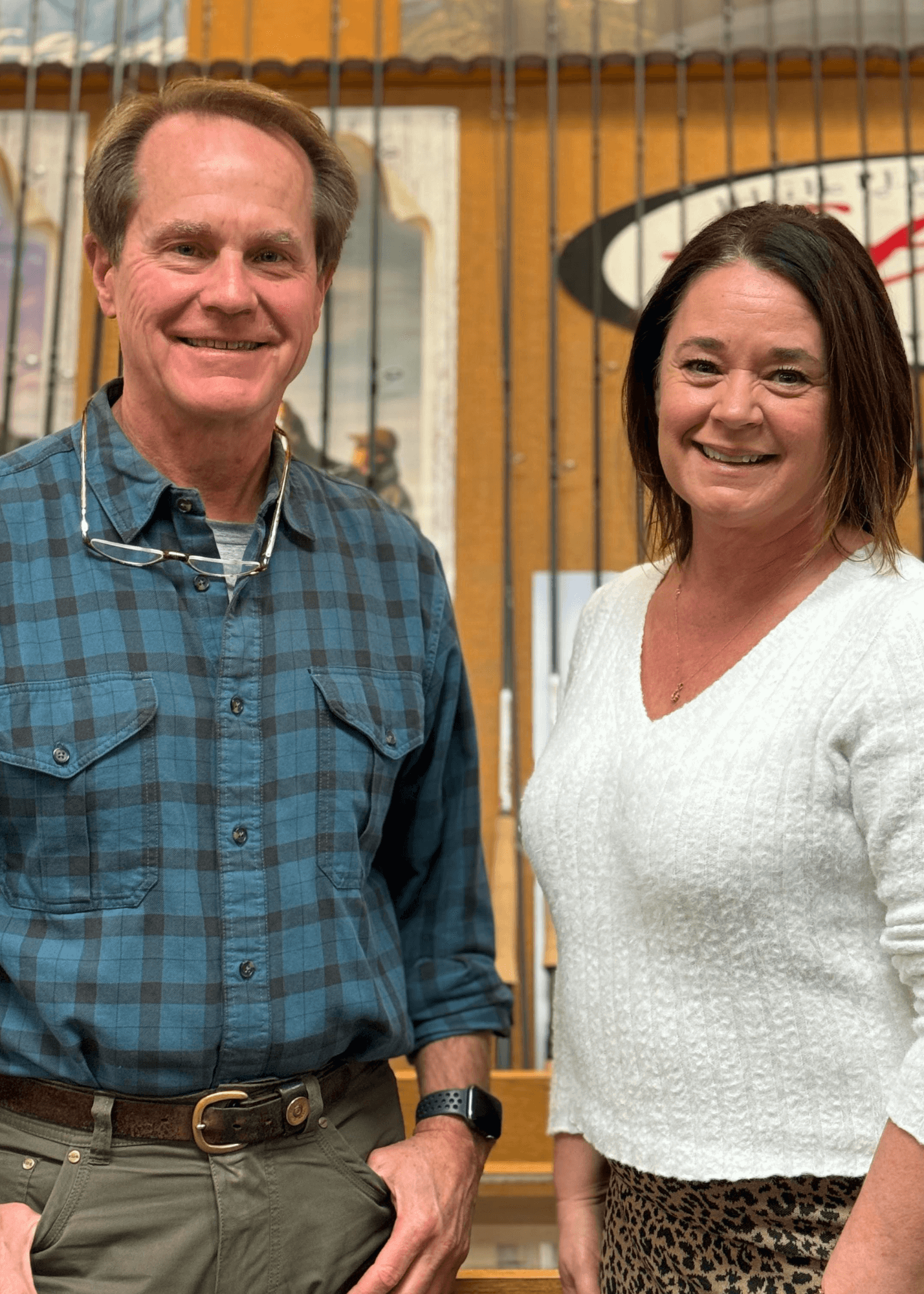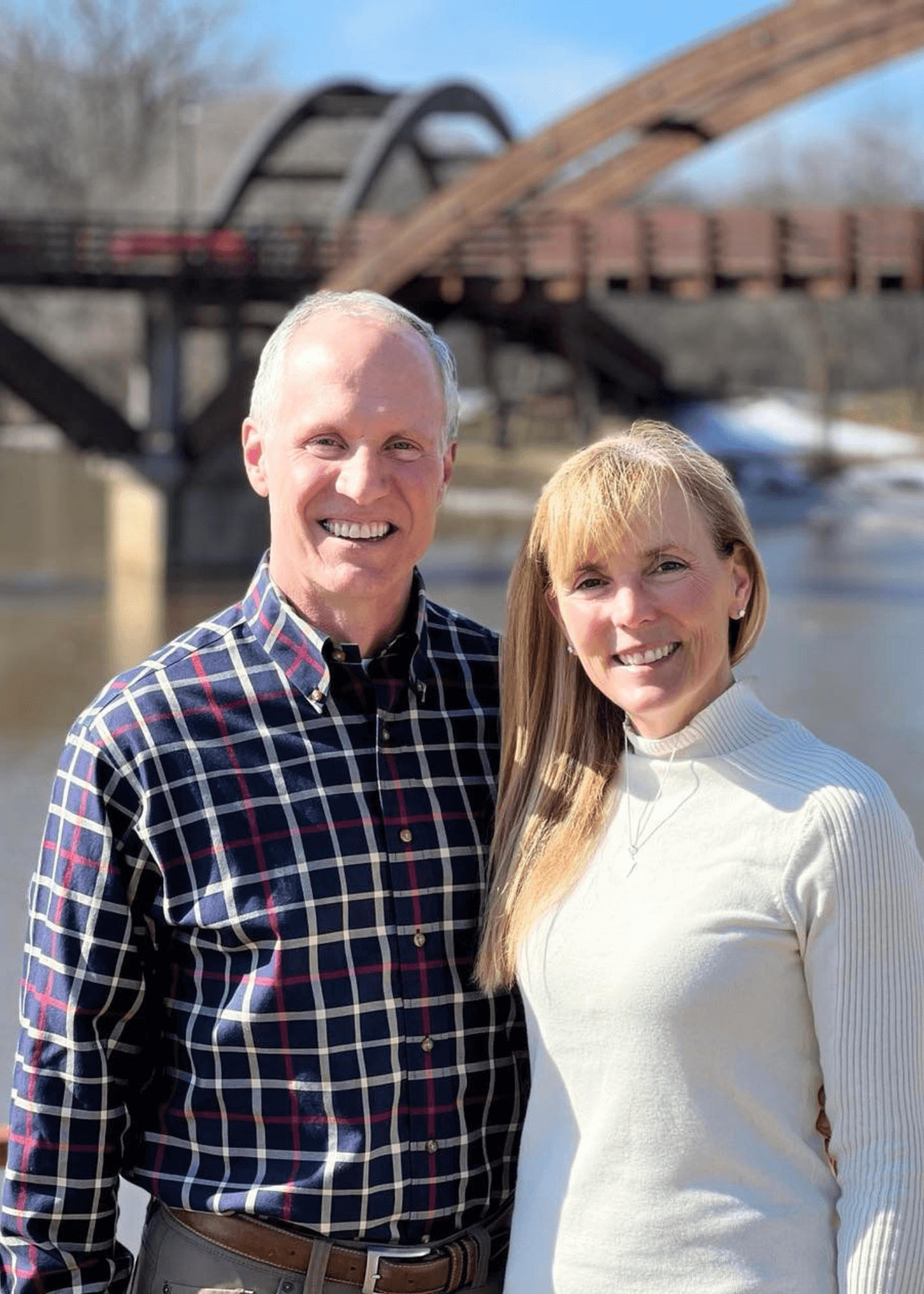“My parents were wonderful people. My mom, Helen Dow Whiting, was born in Midland, and my dad, Macauley Whiting, was from Birmingham, just outside of Detroit. After high school, Mom went to Sarah Lawrence in Westchester County, New York, and Dad went to Yale in Connecticut. Dad was in mechanical engineering, captain of the Yale football team, and a really good athlete. Mom was a chemistry major; there weren’t very many women who did that at the time. She was very bright but kind of held back because women couldn’t do a lot back then, which was too bad because of how smart and sharp she was.
I don’t know how they met, but they got married right at the end of World War II. Dad joined the Navy in July of 1945, but the war was over the next month, so he got about as far as the Philippines and turned around and came back. From there, they went back to graduate school. Dad got a master’s degree and then went to work for Dow.
In the early 70s, Midland was working on making the entrances to the town better, and I think Mom and Dad wanted to participate in that whole effort. Mom and Dad were both very community-minded: they were involved in and financially supported a lot of things to make Midland a better place to live. Dad had been the general manager of what was called the Michigan division at the time, and he was very proud of that. I remember growing up, he worked in the 2020 or 2030 building at the corporate headquarters, and he would take my brother and me in there at night, sometimes to run around the halls while he was working, and we had a blast. He was a trustee and Chairman of the Board of Northwood University for probably 40 years and was instrumental in bringing them to Midland. Mom grew up in Midland, and her parents, Willard, and Martha Dow, were very big on making the community a better place, so that’s just in the DNA of the Dow family.
Because of that, they supported creating Whiting Overlook Park as a way for people to see the chemical plant differently than what they were used to. You drive up this hill, and it has a nice park with various signs that show what you’re looking at. Being up 50 feet, you don’t just see the first row of the chemical plant, you see over the top and deeper into the plant, and it’s far enough away that you can get a full panoramic view of it. I can’t forget to mention that in the early ’70s, what’s now Midland Cogeneration Venture was being built as a nuclear power plant by Consumers Power, and you can see MCV from Whiting Overlook Park. The power plant wasn’t finished because it was converted to a gas-fired plant instead.
An important part of Midland’s history is the generosity of foundations and individuals, and I think that really started with Herbert and Grace Dow. They were good people with good hearts, and they wanted to do good things for the community and the residents of the community, as well as help the company and its employees.
Herbert’s idea of using electricity to extract bromine from brine just transmogrified into the giant company we know today. It went from, I don’t know what their sales were the first year, maybe $100,000 or something, and now it’s $50 billion. Just imagine! All from the idea of using electricity to make chemicals. Go figure! With all that growth, a lot of wealth was generated, so after Herbert died, Grace took a substantial portion of her net worth and put it into the Herbert and Grace Dow Foundation rather than just passing it all on to her children. That’s what she wanted to do, and that’s what Herbert would have wanted to do also because of how committed they were to the community. Between 1936 and 1953, she gave about $11 million of Dow stock, and that turned into the foundation, which has given away $800 million dollars away to Midland and other places in Michigan since its beginning, and that giving continues year after year.
And there are so many other individuals and foundations in Midland, including the Midland Area Community Foundation, who have done and are still doing the same. They’re absolutely critical to Midland. It’s a wonderful town, a wonderful place to live, and a very unique place with the resources of a city much bigger than 40,000 people. Go around the country and look at small cities like Midland, they don’t have the same kind of resources, and that’s because of its culture of generosity.”





